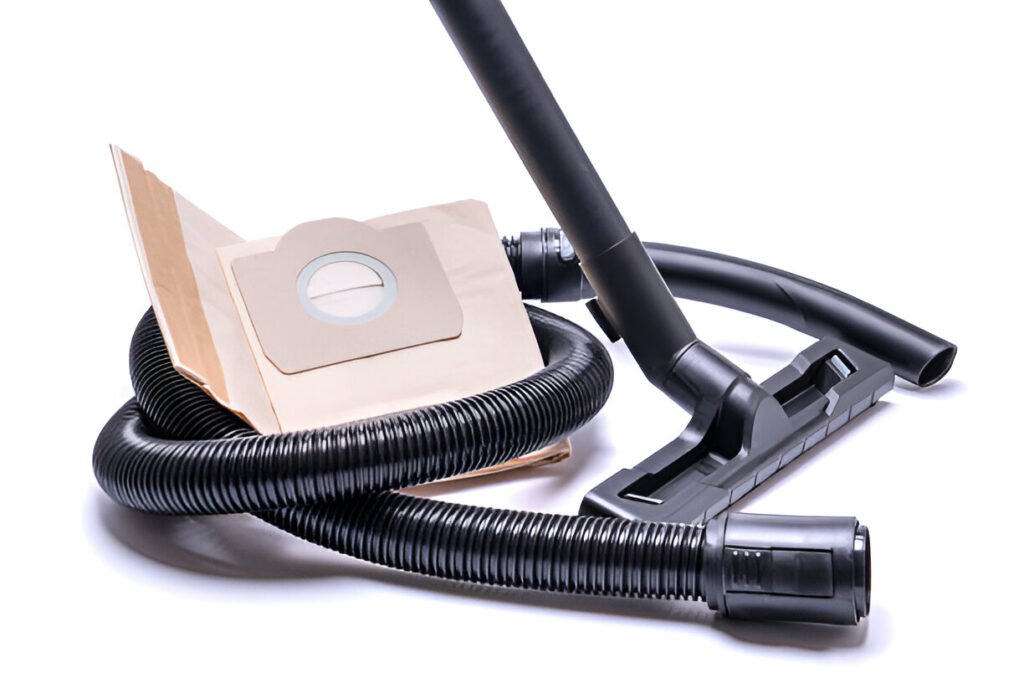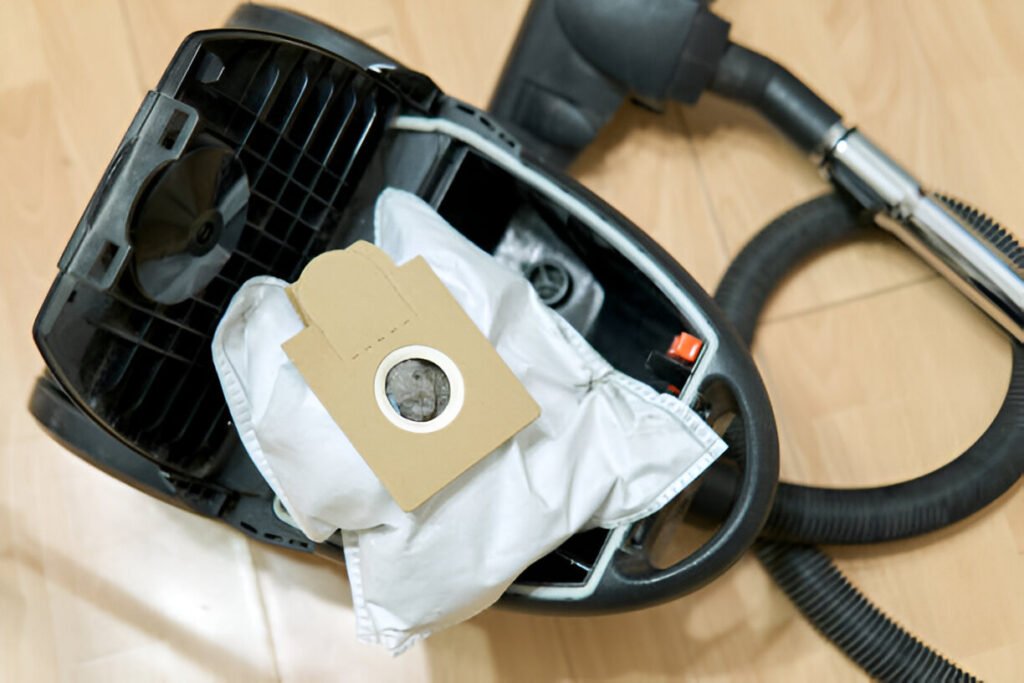Vacuum cleaner bags are generally not biodegradable. They often contain synthetic materials that do not break down easily.
Vacuum cleaner bags play a crucial role in maintaining household cleanliness by trapping dust and debris. Many people are concerned about the environmental impact of these bags. Most vacuum cleaner bags are made from synthetic materials, which are not biodegradable.
This means they do not break down naturally and can contribute to landfill waste. There are some eco-friendly alternatives available, such as bags made from natural fibers. Choosing the right type of bag can make a significant difference in reducing your environmental footprint. Being informed about your options can help you make more sustainable choices.
Vacuum Cleaner Bags
Vacuum cleaner bags are essential for collecting dust and debris. They help keep your home clean and healthy. Understanding their materials and types is important. This helps in making eco-friendly choices.
Types Of Bags
There are different types of vacuum cleaner bags available. Each type serves a specific purpose. Let’s explore the common types:
- Disposable Bags: These are single-use bags. They are thrown away after filling up.
- Reusable Bags: These can be emptied and reused. They are more eco-friendly.
- Cloth Bags: Made of fabric. They are washable and durable.
Common Materials Used
Vacuum cleaner bags are made from various materials. The choice of material affects their biodegradability. Here are some common materials:
| Material | Description |
|---|---|
| Paper | Paper bags are biodegradable. They break down easily. |
| Microfiber | Microfiber bags are durable. They are less biodegradable. |
| Plastic | Plastic bags are not biodegradable. They harm the environment. |
| Cloth | Cloth bags are reusable. They are eco-friendly. |
Biodegradability Explained
Understanding the biodegradability of vacuum cleaner bags is important. It helps us make eco-friendly choices. Biodegradability means something can break down naturally. Let’s dive deeper into what this means.
What Is Biodegradability?
Biodegradability refers to how materials break down. This process is done by microorganisms. These include bacteria, fungi, and algae. The end products are water, carbon dioxide, and organic matter. This breakdown is essential for keeping our environment clean.
Some materials biodegrade quickly. Others take years or even centuries. The speed depends on the material’s composition. Natural materials like wood and paper biodegrade faster. Synthetic materials like plastic take much longer.
Factors Affecting Decomposition
Several factors affect how quickly something biodegrades. These include:
- Material Type: Natural materials break down faster than synthetic ones.
- Temperature: Warmer temperatures speed up decomposition.
- Moisture: More moisture helps microorganisms thrive.
- Oxygen Levels: Oxygen-rich environments aid faster breakdown.
- Presence of Microorganisms: More microorganisms mean quicker decomposition.
Let’s take a look at how different materials compare:
| Material | Decomposition Time |
|---|---|
| Paper | 2-6 weeks |
| Wood | 1-3 years |
| Plastic | 500-1000 years |
Knowing these factors can help us understand the biodegradability of vacuum cleaner bags. We can then make better choices for our planet.
Materials In Vacuum Cleaner Bags
Vacuum cleaner bags collect dust and debris. These bags come in various materials. Knowing the material helps determine if they are biodegradable. Let’s explore the common materials used in vacuum cleaner bags.
Paper Bags
Many vacuum cleaner bags are made of paper. These paper bags are usually biodegradable. They break down naturally over time. Paper bags are often preferred for their eco-friendliness. They are made from wood pulp. This material decomposes easily. Paper bags can also be recycled. This makes them a sustainable choice.
Here are some features of paper vacuum cleaner bags:
- Eco-friendly
- Biodegradable
- Recyclable
- Made from wood pulp
Synthetic Bags
Some vacuum cleaner bags are made of synthetic materials. These materials include polypropylene and nylon. Synthetic bags are not biodegradable. They can last for many years in landfills. These bags are often stronger than paper bags. They are less likely to tear. Synthetic bags can hold more dust and debris.
Here are some features of synthetic vacuum cleaner bags:
- Durable
- Not biodegradable
- Made from polypropylene or nylon
- Higher dust capacity
Understanding the materials in vacuum cleaner bags helps make eco-friendly choices. Choose the right bag for your needs and the environment.

Environmental Impact
The environmental impact of vacuum cleaner bags is a growing concern. Many people are unaware of their effects on the planet. Understanding this can help us make better choices.
Landfill Concerns
Vacuum cleaner bags often end up in landfills. These bags are usually made of non-biodegradable materials. This means they do not break down easily. They can stay in landfills for many years.
Here are some facts about vacuum cleaner bags in landfills:
- They take hundreds of years to decompose.
- They contribute to landfill overflow.
- They can release harmful chemicals into the soil.
Choosing biodegradable bags can reduce these problems. Biodegradable bags break down more quickly. This helps keep our landfills less crowded and cleaner.
Recycling Challenges
Recycling vacuum cleaner bags presents significant challenges. Most standard bags are not recyclable. They are made from mixed materials that are hard to separate.
Below are some key recycling challenges:
- Mixed materials complicate recycling processes.
- Contaminants from dust and debris make recycling difficult.
- Few recycling centers accept vacuum cleaner bags.
Using bags made from single materials can help. Also, cleaning the bags before recycling can make the process easier.
Consider these alternatives to reduce environmental impact:
| Alternative | Benefits |
|---|---|
| Reusable Bags | Reduce waste and are cost-effective. |
| Biodegradable Bags | Break down faster in landfills. |
Making small changes can lead to a big environmental impact. Choose eco-friendly vacuum cleaner bags whenever possible.
Alternatives To Traditional Bags
Vacuum cleaner bags are essential for keeping homes dust-free. Traditional bags are not biodegradable, raising environmental concerns. There are alternatives to traditional vacuum cleaner bags that are more eco-friendly. Let’s explore some of these options.
Reusable Bags
Reusable bags are a great alternative to traditional vacuum cleaner bags. They are made from durable materials that can be washed and reused.
Benefits of reusable bags include:
- Cost-effective over time
- Reduced waste
- Less frequent replacements
These bags are easy to clean. Simply empty the contents into the trash and wash the bag. After drying, it’s ready to use again.
Compostable Bags
Compostable bags are another eco-friendly option. These bags break down naturally and return to the earth.
Advantages of compostable bags include:
- Made from organic materials
- Reduced landfill waste
- Safe for composting
Compostable bags are designed to decompose in a compost pile. They do not leave harmful residues behind.
Switching to compostable bags can significantly reduce your carbon footprint.

Consumer Choices
Consumers today are more conscious about their environmental impact. When choosing vacuum cleaner bags, they often ask: Are vacuum cleaner bags biodegradable? This section explores eco-friendly brands and cost considerations.
Eco-friendly Brands
Several brands offer biodegradable vacuum cleaner bags. These brands focus on sustainability and use materials that break down naturally. Here are some popular eco-friendly brands:
- EcoVac: Known for 100% biodegradable bags made from plant-based materials.
- GreenClean: Offers bags that are both compostable and recyclable.
- EarthVac: Uses materials sourced from renewable resources.
Choosing these brands can reduce your carbon footprint. They often use less plastic and more organic materials. This helps in protecting our environment.
Cost Considerations
Eco-friendly vacuum cleaner bags can be more expensive. Here is a cost comparison:
| Brand | Type | Price per Bag |
|---|---|---|
| EcoVac | Biodegradable | $2.50 |
| GreenClean | Compostable | $2.00 |
| EarthVac | Renewable | $1.80 |
| Regular Brand | Plastic | $1.00 |
While eco-friendly bags cost more, they offer long-term benefits. They reduce landfill waste and are better for the planet. Some consumers are willing to pay more for these benefits.
Choosing biodegradable vacuum cleaner bags is a personal decision. It depends on your budget and environmental priorities. Eco-friendly brands provide options that align with sustainable living.
Proper Disposal Methods
Disposing of vacuum cleaner bags correctly is vital for environmental health. Not all vacuum cleaner bags are biodegradable. Proper disposal helps reduce waste and pollution.
Recycling Guidelines
Check if your vacuum cleaner bags are recyclable. Some bags are made of recyclable materials.
Follow these steps for recycling:
- Remove the bag from the vacuum cleaner.
- Ensure the bag is empty of dust and debris.
- Check local recycling rules. Some areas may accept vacuum bags.
- Place the bag in the designated recycling bin.
Composting Tips
Biodegradable vacuum cleaner bags can be composted. This helps reduce landfill waste.
To compost your vacuum bags, follow these tips:
- Ensure the bag is labeled as biodegradable.
- Empty the bag of non-organic materials.
- Cut the bag into smaller pieces for faster decomposition.
- Add the pieces to your compost pile or bin.
- Mix the bag pieces with other compostable materials.
| Material | Disposal Method |
|---|---|
| Paper-based bags | Recycle or compost |
| Plastic-based bags | Recycling center |
| Biodegradable bags | Composting |
Proper disposal of vacuum cleaner bags protects the environment. Use these methods to help reduce waste.
Future Of Vacuum Cleaner Bags
The future of vacuum cleaner bags is promising. Companies are innovating to create more sustainable options. Let’s explore some exciting trends and advancements.
Innovations In Materials
New materials are being developed for vacuum cleaner bags. Biodegradable materials are a key focus. These materials break down naturally over time.
Engineers are also exploring plant-based plastics. These alternatives reduce environmental impact. Some companies are already using such materials.
Here’s a comparison of traditional vs. biodegradable vacuum cleaner bags:
| Material Type | Environmental Impact | Decomposition Time |
|---|---|---|
| Traditional Plastic | High | Hundreds of years |
| Biodegradable Plastic | Low | Months to years |
Sustainable Practices
Sustainable practices are also being adopted. Companies are focusing on reducing waste and recycling materials.
Many vacuum cleaner brands now offer recyclable bags. These bags can be recycled after use.
Here are some sustainable practices in the industry:
- Using recycled materials
- Offering bag recycling programs
- Reducing packaging waste
These practices help to reduce the environmental impact.
Consumers are also becoming more aware. They prefer eco-friendly products. This shift is encouraging companies to innovate further.
Frequently Asked Questions
Are Vacuum Bags Environmentally Friendly?
Vacuum bags are not always environmentally friendly. Many are made from non-recyclable plastic. Opt for biodegradable or reusable options to reduce environmental impact.
Is Vacuum Packaging Environmentally Friendly?
Vacuum packaging can be environmentally friendly if recyclable materials are used. It reduces food waste and packaging volume.
How To Dispose Of A Vacuum Cleaner Bag?
To dispose of a vacuum cleaner bag, first remove it carefully. Seal the bag in a plastic bag. Then, place it in your household trash. Check local regulations for any specific disposal guidelines. Avoid inhaling dust during the process.
Are Vacuum Sealed Bags Recyclable?
Most vacuum-sealed bags are not recyclable. Check local recycling guidelines for specific disposal instructions.
Understanding the biodegradability of vacuum cleaner bags is crucial for eco-conscious consumers. Opt for biodegradable options to reduce waste. Always check the material and disposal methods. Small choices can lead to significant environmental benefits. Stay informed and make sustainable decisions for a cleaner planet.





